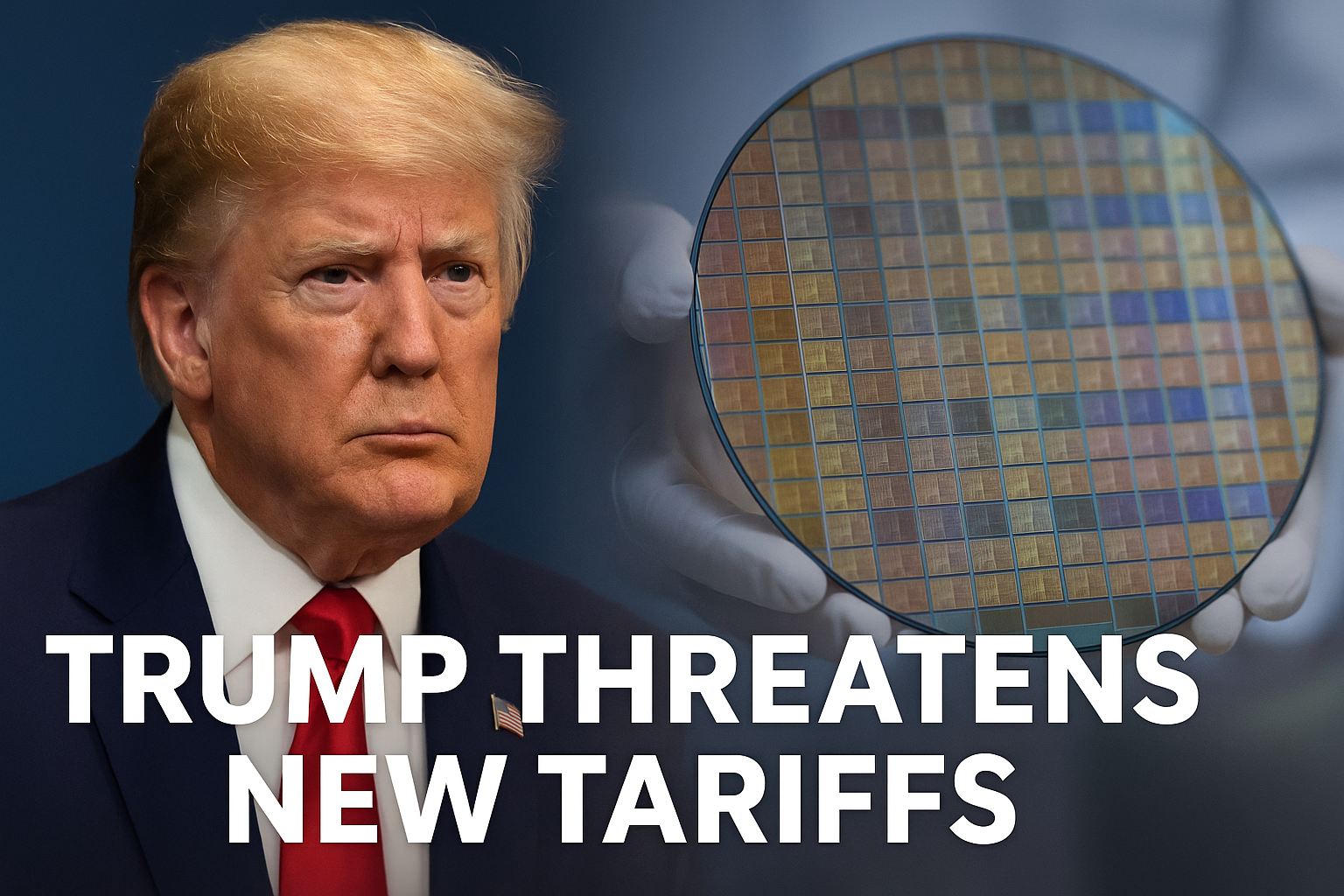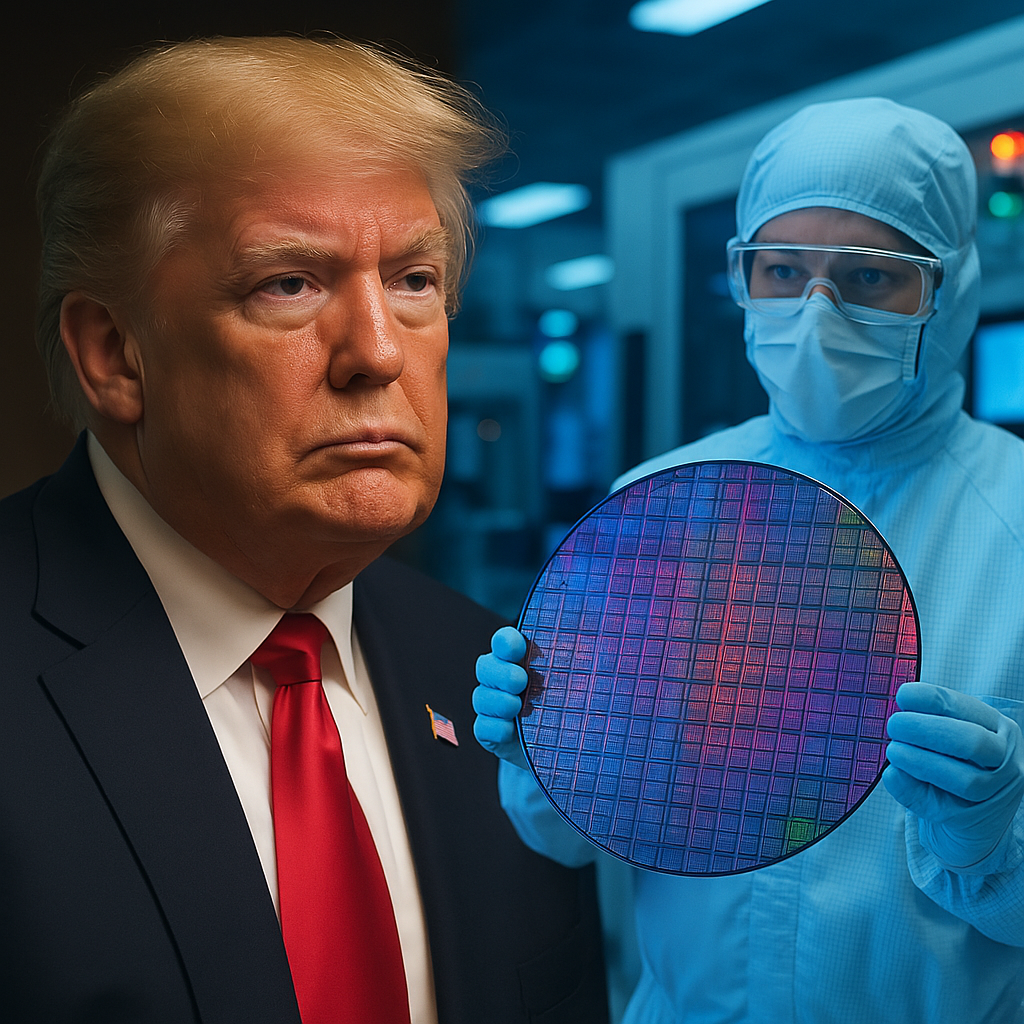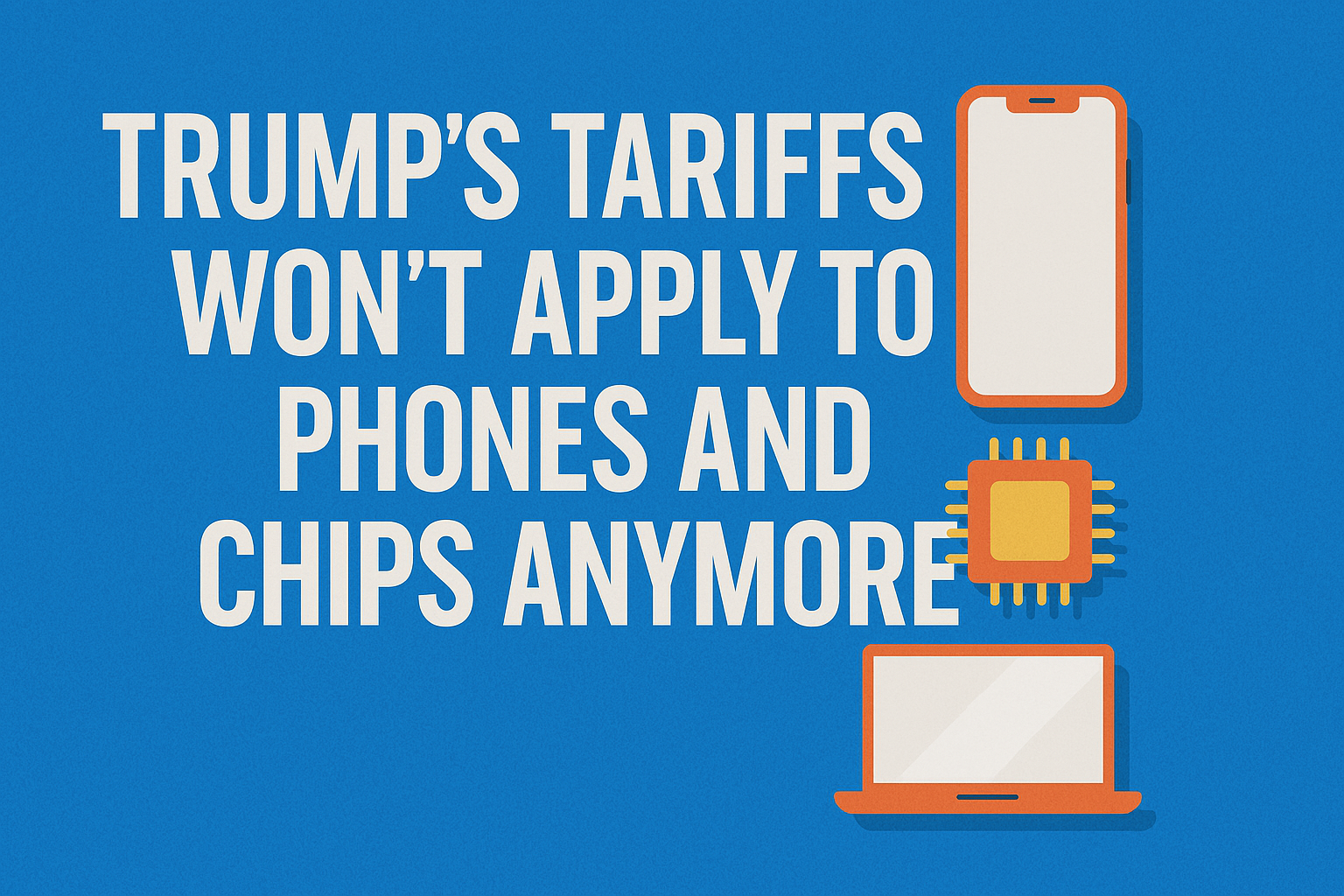This week, former President Donald Trump reignited trade tensions by threatening new tariffs on Taiwanese-made computer chips—a move that could significantly impact U.S. businesses reliant on advanced electronics.
What’s Happening?
Trump has proposed a 100% tariff on chips from Taiwan unless companies like TSMC (Taiwan Semiconductor Manufacturing Company) expand their manufacturing presence in the U.S. This comes despite TSMC’s ongoing investment of $165 billion to build six chip factories in Arizona, aiming to produce 30% of its most advanced chips domestically. Axios+1The Business Journals+1
While smartphones and some electronics remain exempt from these tariffs, the administration is also investigating the national security implications of importing semiconductors and pharmaceuticals, signaling potential future trade actions. AP News+1Reuters+1
Why It Matters to U.S. Businesses
For American entrepreneurs and companies, these developments could lead to:
-
Increased Costs: Tariffs may raise prices on essential components, affecting product pricing and profit margins.
-
Supply Chain Disruptions: Dependence on Taiwanese chips means potential delays and shortages if trade barriers are implemented.
-
Strategic Uncertainty: Ongoing trade tensions add unpredictability to sourcing and manufacturing decisions.
What You Can Do
To navigate this evolving landscape:
-
Stay Informed: Monitor updates from key industry players like TSMC and news outlets such as Reuters and Bloomberg.Bloomberg.com+1Reuters+1
-
Evaluate Supply Chains: Assess your reliance on imported components and explore alternative sourcing options.
-
Engage with Industry Groups: Organizations like the Consumer Technology Association can provide advocacy and resources.Reuters
As the situation develops, staying proactive and informed will be key to mitigating risks associated with these potential trade changes.


